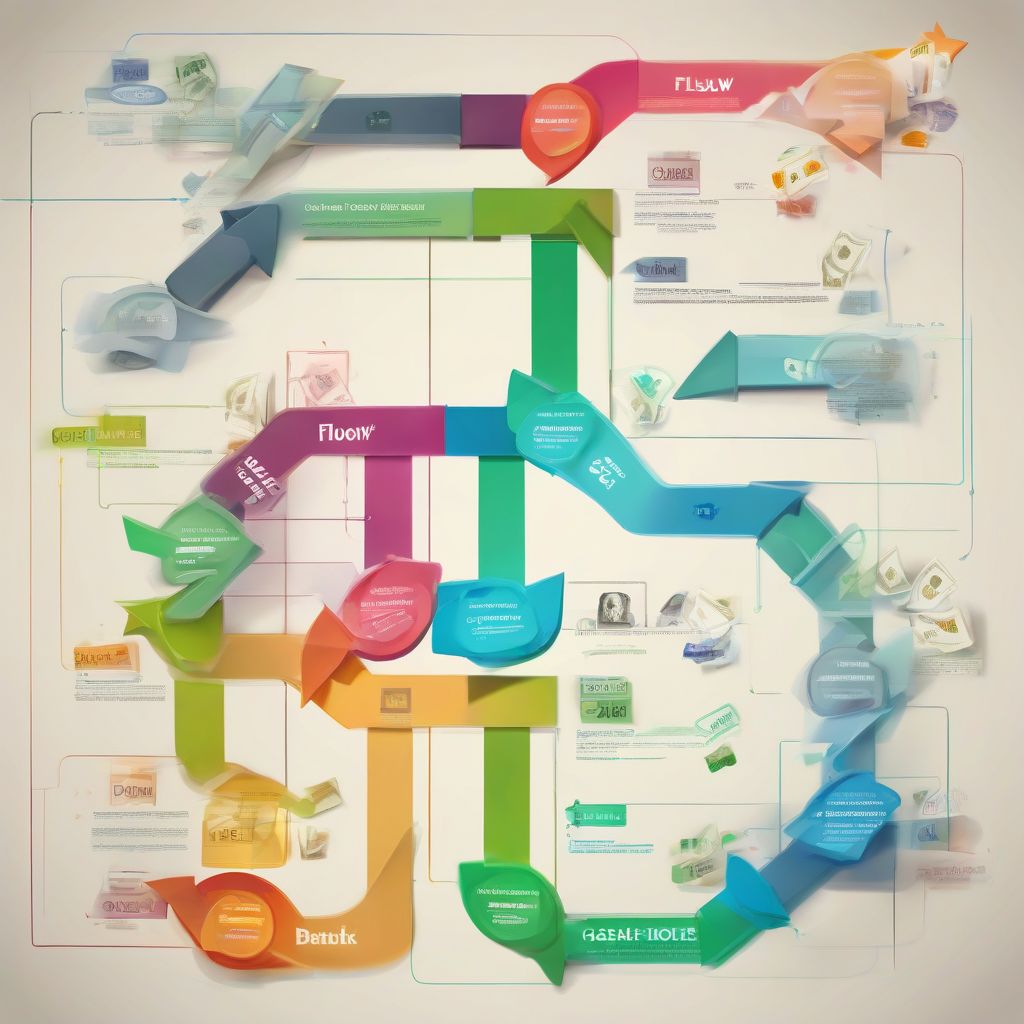Imagine this: you’re finally living your dream, running a successful business, or enjoying the rewards of a fulfilling career. You’re passionate about what you do, but suddenly, a wave of anxiety washes over you as you think about your finances. Does this sound familiar?
Managing cash flow effectively is crucial for anyone, especially for individuals passionate about their work and less interested in the nitty-gritty of finance. Whether you’re a seasoned entrepreneur, a freelancer, or just starting in your career, mastering cash flow management can be your secret weapon to financial stability and peace of mind.
Understanding the Essence of Cash Flow
Before diving into the techniques, let’s clarify what cash flow is and why it’s the lifeblood of your financial well-being. In simple terms, cash flow is the movement of money in and out of your business or personal finances. It’s about understanding how much money you have coming in, how much is going out, and when these transactions occur.
Think of it like your nutritional intake: just like you track your calorie intake and macronutrients to achieve your health goals, tracking your income and expenses helps you stay financially healthy.
Effective Cash Flow Management Techniques to Take Control
Now, let’s explore some powerful cash flow management techniques that can empower you to take control of your finances:
1. Budgeting: Your Financial Roadmap
Just as you plan your meals to ensure nutritional balance, a budget serves as your financial roadmap. It’s about allocating your income to different expense categories and ensuring you don’t spend more than you earn.
- Start with Tracking: Begin by tracking your expenses for a month or two to understand your spending habits.
- Categorize and Allocate: Divide your expenses into categories like housing, food, transportation, and entertainment. Then, allocate a specific amount from your income to each category.
- Be Realistic and Flexible: Your budget should be realistic and adaptable to your lifestyle and financial goals. Review and adjust it regularly.
2. Optimize Your Invoicing and Payment Collection
Delayed payments from clients or customers can significantly impact your cash flow, especially for freelancers and small business owners. Here’s how to optimize your processes:
- Clear Invoices: Issue clear, detailed invoices with all the necessary information, including payment terms and late payment penalties.
- Offer Multiple Payment Options: Provide clients with various payment options to make it convenient for them to pay promptly.
- Automate Where Possible: Use invoicing software or online payment platforms to automate the process and send reminders.
3. Smart Inventory Management (For Businesses)
For businesses that handle inventory, efficient management is crucial for healthy cash flow:
- Don’t Overstock: Avoid tying up too much cash in inventory. Analyze sales trends and stock up accordingly.
- Implement Just-in-Time Inventory: Consider using a just-in-time inventory system where you receive goods only when needed, minimizing storage costs.
- Track and Monitor Regularly: Use inventory management software to track stock levels and identify slow-moving items.
 Cash Flow Management Chart
Cash Flow Management Chart
[amazon bestseller=”cash flow management”]
4. Manage Debt Strategically
Debt, if not managed effectively, can drain your cash flow. Here’s how to approach it strategically:
- Consolidate High-Interest Debts: If you have multiple high-interest debts, consider consolidating them into a lower-interest loan.
- Negotiate with Creditors: Don’t hesitate to negotiate with creditors for lower interest rates or payment plans.
- Prioritize High-Interest Debts: Focus on paying off high-interest debts first to save money in the long run.
5. Build an Emergency Fund
Life is unpredictable, and unexpected expenses can arise at any time. An emergency fund acts as a financial cushion:
- Aim for 3-6 Months of Expenses: Ideally, your emergency fund should cover 3-6 months’ worth of living expenses.
- Start Small and Be Consistent: Even small, regular contributions add up over time.
- Keep it Separate: Maintain your emergency fund in a separate account to avoid accidentally spending it.
Conclusion: Achieving Financial Well-being through Effective Cash Flow Management
Mastering cash flow management is not about being a financial expert; it’s about creating a system that works for you and your lifestyle. By implementing these techniques and adapting them to your unique needs, you can achieve financial stability, peace of mind, and the freedom to focus on your passions.
Remember, managing your finances effectively is an ongoing process. Embrace the journey, and don’t hesitate to seek professional advice when needed. Now, it’s your turn! What are your biggest cash flow challenges, and how do you plan to tackle them? Share your thoughts in the comments below!
